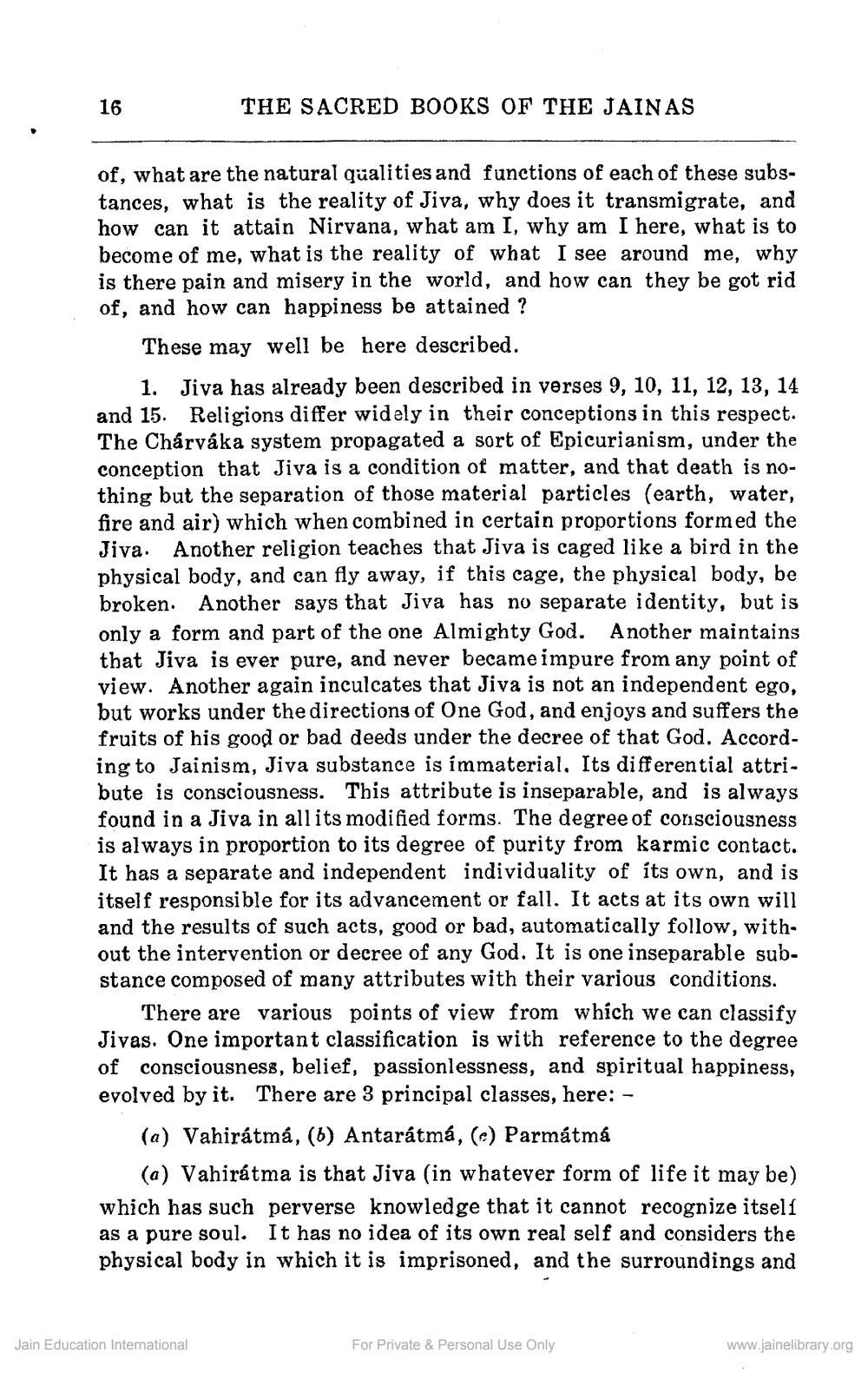________________
16
THE SACRED BOOKS OF THE JAINAS
of, what are the natural qualities and functions of each of these substances, what is the reality of Jiva, why does it transmigrate, and how can it attain Nirvana, what am I, why am I here, what is to become of me, what is the reality of what I see around me, why is there pain and misery in the world, and how can they be got rid of, and how can happiness be attained ?
These may well be here described.
1. Jiva has already been described in verses 9, 10, 11, 12, 13, 14 and 15. Religions differ widely in their conceptions in this respect. The Chárváka system propagated a sort of Epicurianism, under the conception that Jiva is a condition of matter, and that death is nothing but the separation of those material particles (earth, water, fire and air) which when combined in certain proportions formed the Jiva. Another religion teaches that Jiva is caged like a bird in the physical body, and can fly away, if this cage, the physical body, be broken. Another says that Jiva has no separate identity, but is only a form and part of the one Almighty God. Another maintains that Jiva is ever pure, and never became impure from any point of view. Another again inculcates that Jiva is not an independent ego, but works under the directions of One God, and enjoys and suffers the fruits of his good or bad deeds under the decree of that God. According to Jainism, Jiva substance is immaterial. Its differential attribute is consciousness. This attribute is inseparable, and is always found in a Jiva in all its modified forms. The degree of consciousness is always in proportion to its degree of purity from karmic contact. It has a separate and independent individuality of its own, and is itself responsible for its advancement or fall. It acts at its own will and the results of such acts, good or bad, automatically follow, without the intervention or decree of any God. It is one inseparable substance composed of many attributes with their various conditions.
There are various points of view from which we can classify Jivas. One important classification is with reference to the degree of consciousness, belief, passionlessness, and spiritual happiness, evolved by it. There are 3 principal classes, here: -
(a) Vahirátmá, (6) Antarátmá, (e) Parmátmá
(a) Vahirátma is that Jiva (in whatever form of life it may be) which has such perverse knowledge that it cannot recognize itself as a pure soul. It has no idea of its own real self and considers the physical body in which it is imprisoned, and the surroundings and
Jain Education International
For Private & Personal Use Only
www.jainelibrary.org




